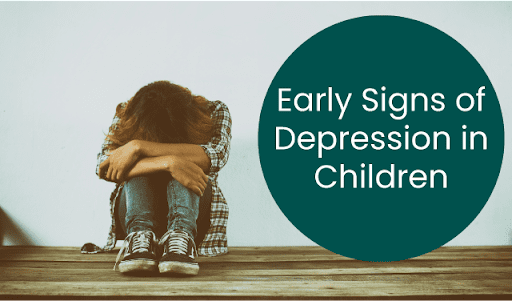Childhood depression is a severe condition that can affect a child’s behaviour, learning, and development. Childhood depression can lead to long-term physical and mental health problems when left untreated. The effects of childhood depression are usually long-lasting, affecting the psychological and physical health and a child’s cognitive abilities.
This article contains everything you need to know about childhood depression and how to handle it effectively.
What are some early symptoms of childhood depression?
According to the Centers for Disease Control [1], there are many signs and symptoms of childhood depression. Some early symptoms of childhood depression include:
- Loss of interest in things that used to be fun or interesting
- The direction of irritability and anger may be at family members or friends
- Inability to concentrate or make important decisions
- Poor appetite and weight loss/gain
- Sleeping too much or too little
- Signs of anxiety, such as feelings of being “on edge” or overly sensitive to criticism
- Bed-wetting
- Appearing sad and withdrawn and feeling sad, hopeless, and guilty without any particular reason
- Act out in school, such as being defiant or getting into fights
What are the causes of early symptoms of childhood depression?
The causes of childhood depression are complex. Some factors affecting childhood depression include:
Genetic predisposition
Children with a family history of depression are at increased risk of developing the disorder. However, it is essential to note that not all children with a parent with depression will develop symptoms.
Stressful life events
The stressors that may trigger depressive symptoms in children include poor academic performance, relationship problems and difficult circumstances at home or school.
Stressful life events such as the death or divorce of parents or separation from a parent that was out of control can also cause depression in children.
Environmental factors
Environmental factors can also play a role in childhood depression; however, these are not necessarily related to stress or adverse life events. For example, an overly restrictive or overprotective upbringing may result in feelings of isolation and low self-esteem for some kids, and this condition can further develop into childhood depression.
Furthermore, fear and guilt of not living up to the expectations of parents or teachers can also cause depression in young kids.
What are the effects of early symptoms of childhood depression?
Childhood depression is a severe mental health problem. It can affect a child’s ability to learn and develop social skills and relationships, physical health and well-being, and even thinking abilities.
Children who are depressed may have sudden changes in behaviour that are out of character for them. For example, they may behave unusually quietly or withdrawn. In contrast, others experience severe symptoms such as intense sadness or anger, extreme anxiety, poor concentration and memory, irritability or mood swings, self-harm, eating disorders, difficulty sleeping or nightmares.
Other symptoms include:
- Irritability or anger outbursts
- Difficulty concentrating on schoolwork or activities
- Poor sleep patterns; for example, being unable to go to sleep or waking early each day
- Changes in appetite include eating more food than usual and throwing it away afterwards.
- In addition to these physical signs, some cognitive changes can occur in a child with depression, such as difficulty remembering things like names or facts.
How do you overcome early symptoms of childhood depression?
Childhood depression is a prevalent condition that can affect children of any age and gender, but it seems to have become more commonplace over the last few decades. The American Academy of Paediatrics states that the best way to prevent depression in children is by making sure they get proper care and attention at home. Here are a few things you can do to ensure that:
- Keep a close eye on your child’s moods and behaviours. If you see any signs of depression in your child, get help immediately.
- Make sure your child gets the help they need. It can include counselling, medication, or both. Talk with your child’s doctor about what might work best for your child.
- Cognitive Behavioral Therapy (C.B.T.), a form of psychotherapy, can help treat depression in kids. The primary goal of this therapy is to teach kids to control their negative behaviours and think more positively. C.B.T. also provides kids with tools and resources to overcome their fears and cope with depression and anxiety.
Conclusion
Childhood depression has prolonged implications. The symptoms are real and severe. For example, depression can make it hard for your child to do their schoolwork and focus on their studies. It can also impact the ability of your child to have fun and sleep well.
Furthermore, it can be hard to concentrate at school or on sports. The child might feel like they are just not living up to their potential. They may often be irritable or angry, especially toward people who care about them. It can be upsetting for parents who want their child’s behaviour to change.
In such cases, it is advisable to seek professional help. United We Care is a leading mental health and wellness platform that provides professional guidance to help you resolve your mental health issues. Click here to learn more about the services U.W.C. provides.
| [1] | “P.E.P.,” Pep-web.org. [Online]. Available: https://pep-web.org/browse/document/IJP.046.0088A. [Accessed: 27-Dec-2022]. |
| [2] | C.D.C., “Anxiety and depression in children,” Centers for Disease Control and Prevention, 16-Nov-2022. [Online]. Available: https://www.cdc.gov/childrensmentalhealth/depression.html. [Accessed: 27-Dec-2022]. |











